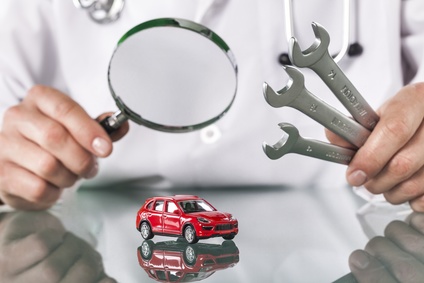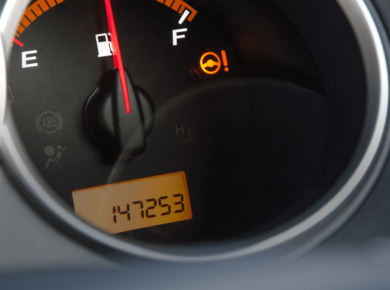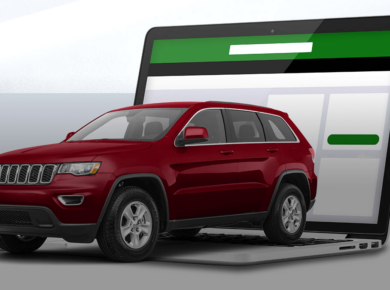When it comes to buying a salvage car, a used car title plays an essential role in the purchase, sale, and ownership transition. There are also a lot of peculiarities regarding salvage vehicles that both experienced and novice car enthusiasts should be aware of. Understanding these challenges when dealing with salvage title cars can help you avoid possible legal, financial, and safety issues.
In this article, we will discuss the most common issues related to used and salvage car titles. You can also find here the steps you should take to ensure successful salvage car title verification and transfer.
What Does a Salvage Title Mean?

A salvage title is a significant term in the automotive industry, denoting used vehicles with a special status officially noted and verified on a certificate. Generally, salvage-title cars have experienced extensive damage, often due to factors like road accidents, floods, fires, vandalism, or theft.
How does a car get a salvage title? After a vehicle undergoes substantial damage, an insurance company evaluates its condition comprehensively and uses a specific percentage system to determine the extent of the damage. If the damage exceeds the predetermined threshold established by the relevant institution (usually ranging from 60% to 100% of the car’s value), the insurance company typically designates the damaged salvage cars as a total loss. This means the vehicle is no longer considered roadworthy or safe to drive, and driving it on public roads is prohibited. In such cases, the owner must apply to the local DMV or another relevant institution to obtain a special salvage car title.
A salvage title indicates that the cost of repairing the damage exceeds a specific proportion of the vehicle’s market value. It is important to note that this parameter varies among US states and insurance providers. The salvage car title serves to assist insurance companies and potential buyers in evaluating the risks associated with the vehicle’s history. As a rule, salvage-title cars are typically sold at significantly lower prices compared to similar models with clear titles.
It’s crucial to understand that not all salvage cars are in poor condition. Some vehicles may have incurred less damage, but due to factors like the vehicle’s age or the high cost of repairs, insurance companies may categorize them as total losses. In such instances, a salvage title doesn’t necessarily signify that the car is beyond repair. This just reflects an insurance company’s financial decision.
Common Used Car Title Issues You Can Face

If you’re in the market for salvage cars to buy, the vehicle title is one of the key factors that influence the whole process. That’s why understanding the potential challenges and issues that can arise with used car titles is essential to ensuring a smooth used car registration and avoiding unexpected legal, financial, and safety risks down the road.
Being equipped with the knowledge needed, you will be able to make informed decisions on the second-hand car market. Let’s take a look at the commonly used car title issues that motorists can face when buying damaged salvage cars.
Incomplete or Incorrect Salvage Car Title Documentation
One of the most common headaches for used car buyers is dealing with incomplete or incorrect title documentation. This could include typos, missing signatures, incorrect information about the vehicle, the wrong vehicle identification number (VIN), or even missing pages. These issues can delay the transfer of ownership or cause problems when trying to register the vehicle.
The best solution here is to familiarize yourself with the DMV requirements for the proper car title transfer and check the used vehicle documentation prior to making a purchase. Ensure that all details regarding the vehicle’s make, model, year, and VIN match the actual automobile you are considering.
Available Liens on the Vehicle
Another crucial title concern to be aware of is the presence of a significant lien on the vehicle. They represent legal claims by a third party (usually lenders, financial institutions, or creditors) that may still have a financial interest in the automobile.
Note that the debt must be fully repaid before the salvage car title can be transferred to a new owner. If you acquire a salvage title car with an outstanding lien on it unintentionally, you could find yourself responsible for the associated debt. Therefore, it’s a top priority to carefully check the title and run a VIN lookup to find out if there are any attached liens before buying a salvage car.
Difficult Salvage Title Car Insurance and Financing
Insuring a salvage title car in the USA can be challenging due to perceived higher risk. Used vehicles may require obtaining a rebuilt car certificate, involving repairs and a rebuilt title inspection. If you want to insure a wrecked car, seek out specialized insurers that focus on covering these vehicles. They handle determining the salvage-title car value differently than calculating coverage for clean title cars. Additionally, consult your local DMV for specific requirements, as state regulations for insuring a salvage title car vary
Additionally, obtaining financing for a salvage title vehicle can be challenging. Due to their perceived higher risk, many lenders are hesitant to provide loans for such cars. Buyers of salvage title cars may need to explore alternative financing options or use cash for the purchase.
Misunderstanding of Used Car Title Branding

When dealing with secondhand and wrecked vehicles, title branding complications are very common. That’s why car buyers should be aware of the specific meaning of different titles.
What does a branded title mean? This is a special designation indicating its history of significant damage, theft, or other factors that may affect its value or safety. For example, flood-damaged car titles indicate that the vehicle was severely damaged by water and may have concealed technical issues. Titles marked as stolen indicate that the vehicle was reported stolen and later recovered.
These issues regarding salvage title branding can have a substantial impact on the vehicle’s value and insurability. You should proceed with caution and conduct extensive research before purchasing such vehicles.
Being Unaware of Local Salvage Car Regulations
Remember, some states may have specific requirements and standards for a used car title transfer. These regulations can cover emissions or vehicle safety inspections. In addition, purchasing a salvage vehicle with an out-of-state title may involve extra paperwork or delays. Failure to meet the legal requirements can hinder the successful transfer of a title. That’s why used car buyers to familiarize themselves with their state’s regulations and ensure the vehicle complies with all necessary inspections and emissions standards.
Salvage Car Title Fraud
Buyers should also remain cautious about title frauds. For example, title washing is a deceptive practice employed by dishonest sellers to remove branding information from a salvage car title. This obscures the vehicle’s history, making it challenging for buyers to spot potential issues. To avoid falling victim to such scams, buyers should be vigilant, carefully inspect the title, and consider obtaining a vehicle history report from a reliable VIN data provider like ClearVin.
There are simple but important steps that will help you avoid common salvage car title issues. They include conducting a thorough title check, particularly a VIN search, validating the correctness of the documents, and clarifying whether there are any liens or particular state requirements before buying a salvage car. Following these easy recommendations will save you from future hassles and headaches when dealing with a salvage car title.
It is also advisable for potential buyers to perform thorough inspections and obtain a detailed history of the vehicle from reputable sources such as ClearVin. These reports provide information on any previous incidents and repairs a vehicle has undergone, allowing buyers to make informed decisions.
Summing Up
A salvage title means the vehicle has been heavily damaged and declared a total loss by an insurance company. While some used vehicles may be in good shape after repairs, buyers should still be cautious. Acquiring a vehicle with a salvage title comes with risks, including potential structural issues and limited insurance choices. To make informed decisions, buyers should rely on a detailed history report and professional inspections when considering a salvaged vehicle.
The ClearVin solution is here to help you conduct your salvage car VIN decoder fast and easily. You can be sure that our database includes only reliable and verified information about the condition of a vehicle, its owner, previous sales, and many other details. Feel free to contact us online or call us at +1 (844) 268-5991 (8:00 AM–3:00 PM EST, Monday–Friday) and ask your questions.









